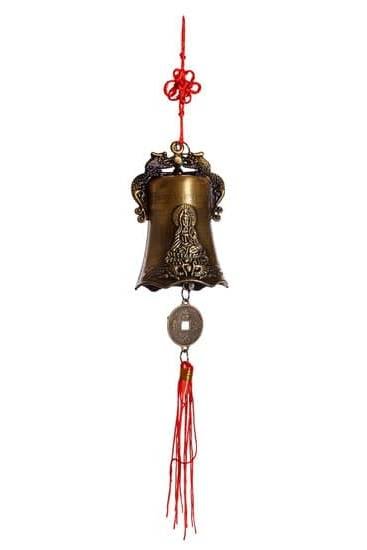Color Feng Shui plays a crucial role in creating a peaceful and harmonious environment within your bedroom. The colors you choose can significantly impact the energy flow in the space, affecting both your physical and mental well-being. By understanding the principles of Color Feng Shui, you can transform your bedroom into a sanctuary that promotes relaxation and restful sleep.
Implementing Color Feng Shui in your bedroom comes with a plethora of benefits. From enhancing overall balance and harmony to improving the quality of your sleep, selecting the right colors can positively influence various aspects of your life. Whether you are looking to boost creativity, promote love and relationships, or simply create a tranquil retreat, Color Feng Shui offers a personalized approach to designing your bedroom space.
Understanding the different meanings behind each color is essential when applying Color Feng Shui principles. Each hue carries its unique energy and symbolism, impacting mood and emotions differently. By selecting colors that resonate with you and align with your intentions for the space, you can create a personalized color palette that supports your overall well-being. Stay tuned to learn more about how different colors can enhance the ambiance of your bedroom according to Color Feng Shui principles.
Benefits of Implementing Color Feng Shui in Your Bedroom
Color plays a significant role in Feng Shui, especially when it comes to creating a harmonious and balanced atmosphere in your bedroom. Implementing Color Feng Shui in your bedroom can bring various benefits that not only enhance the aesthetics of the space but also contribute to your overall well-being and quality of sleep.
Improved Sleep Quality
One of the primary benefits of implementing Color Feng Shui in your bedroom is improved sleep quality. By choosing colors that promote relaxation and tranquility, such as soothing blues and gentle greens, you can create a serene environment that promotes restful sleep. Avoiding stimulating colors like bright reds or oranges can help ensure a more peaceful night’s rest.
Enhanced Mood and Energy Levels
The colors you choose for your bedroom can have a direct impact on your mood and energy levels. By incorporating colors that uplift and energize, such as sunny yellows or soft pinks, you can create a space that boosts your spirits and invigorates you. On the other hand, selecting calming hues like lavender or soft neutrals can promote a sense of calmness and relaxation.
Balance and Harmony
Color Feng Shui principles emphasize the importance of balance and harmony in the bedroom to create a space that supports overall well-being. By carefully selecting a harmonious color palette based on the principles of Color Feng Shui, you can create a balanced environment that promotes peace and tranquility. This balance extends beyond just the colors on the walls to include furniture, decor, and accessories in the room.
Basics of Color Feng Shui
Color plays a significant role in Feng Shui, as each color is believed to have its energy and symbolism that can affect our well-being. Understanding the basics of color Feng Shui can help create a balanced and harmonious environment in your bedroom. By incorporating the right colors based on their meanings and properties, you can enhance the overall energy flow in your personal space.
The Power of Colors in Feng Shui
In Feng Shui, colors are associated with the five elements – Wood, Fire, Earth, Metal, and Water. Each element corresponds to specific colors that carry their unique symbolism and attributes. For example, Blue represents calmness and tranquility due to its association with the Water element, while Red symbolizes passion and energy as it relates to the Fire element. Understanding these relationships can guide you in selecting the appropriate colors for your bedroom to promote balance and harmony.
Different Colors and Their Meanings
Various colors have different effects on our emotions and energies according to Feng Shui principles. For instance:
- Blue: Promotes calmness and serenity, ideal for promoting relaxation in the bedroom.
- Green: Represents growth and renewal, fostering a sense of peace and balance.
- Yellow: Symbolizes warmth and positivity, bringing joy and optimism into the space.
- Pink: Evokes love and compassion, creating a soft and nurturing atmosphere.
By incorporating these colors strategically in your bedroom decor, you can harness their energetic qualities to support restful sleep and emotional well-being.
Balancing Yin & Yang Energies Through Color
In addition to understanding individual colors’ meanings, it is essential to consider balancing Yin (passive) and Yang (active) energies in your bedroom through color choices. Soft pastel hues like Lavender or Peach can promote a more Yin atmosphere conducive to restful sleep, while bold shades like Red or Orange add a touch of Yang energy for vitality. Striking a harmonious balance between these contrasting energies can create a soothing yet invigorating haven for relaxation in your bedroom.
Choosing the Right Colors for Your Bedroom Based on Color Feng Shui Principles
When it comes to creating a tranquil and balanced space in your bedroom, choosing the right colors based on color feng shui principles is essential. The colors you use in your bedroom can have a significant impact on your well-being, mood, and overall energy levels. By understanding the meanings behind different colors and how they interact with each other, you can create a harmonious and relaxing environment that promotes restful sleep and relaxation.
To effectively implement color feng shui in your bedroom, it’s important to understand the basic principles associated with each color. Here are some key concepts to keep in mind when selecting the right colors for your bedroom:
- Red: Represents passion, warmth, and energy. It is best used in moderation as it can be overpowering.
- Blue: Symbolizes calmness, serenity, and tranquility. Ideal for promoting relaxation and restful sleep.
- Green: Associated with growth, balance, and harmony. It can help create a sense of renewal and freshness in your bedroom.
By choosing a color palette that incorporates these principles, you can create a balanced and harmonious environment that supports your overall well-being. Remember to consider the size of your bedroom when selecting colors – light colors can make small rooms feel more spacious, while dark colors can add warmth and coziness to larger spaces.
Incorporating color feng shui principles into your bedroom doesn’t have to be complicated. Start by identifying the main purpose of your bedroom – is it a space for rest and relaxation or for creativity and inspiration? Once you’ve determined this, you can select colors that align with your intentions and enhance the energy flow in the room.
Remember to also consider natural light sources in your bedroom when choosing colors – natural light can affect how colors appear in a space. By carefully selecting the right colors based on color feng shui principles, you can create a calming sanctuary that supports restful sleep and overall well-being.
Creating a Harmonious Color Palette in Your Bedroom
One key principle in creating a harmonious color palette in your bedroom is to choose colors that promote serenity and relaxation. Soft, muted tones such as light blues, greens, and lavenders are often recommended for bedrooms as they have a calming effect on the mind and body. These colors can help reduce stress levels, promote feelings of tranquility, and create a soothing environment that is conducive to restful sleep.
It’s important to strike a balance when incorporating different colors into your bedroom decor based on color Feng Shui principles. While it’s beneficial to include calming shades, adding pops of brighter hues can also energize the space.
For example, accents of warm tones like yellows or oranges can add warmth and vitality to the room without being overwhelming. By carefully selecting a mix of colors that complement each other, you can create a harmonious color palette that enhances the overall ambiance of your bedroom.
| Color | Meaning |
|---|---|
| Blue | Calming and promotes relaxation |
| Green | Harmonious and refreshing |
| Lavender | Promotes tranquility and peace |
Color Feng Shui Tips for Small Bedrooms
When it comes to designing small bedrooms, implementing color Feng Shui principles can make a significant difference in the overall feel and functionality of the space. One key tip for small bedrooms is to utilize light, soothing colors that can visually expand the room.
Opt for soft shades of blue, green, or lavender to create a sense of calm and openness in a limited space. These colors not only promote relaxation but also help the room feel more airy and spacious.
Another important aspect to consider when applying color Feng Shui in small bedrooms is the strategic placement of colors. Focus on incorporating the chosen hues in key areas such as the walls, bedding, and decor accents to ensure a harmonious flow throughout the room.
Using a consistent color palette will create a cohesive look while enhancing the energy and balance within the space. Remember that clutter can disrupt the flow of energy, so be mindful of keeping your small bedroom well-organized and free of unnecessary items.
In addition to choosing the right colors and their placement, lighting plays a crucial role in small bedrooms. Natural light is ideal for creating a positive atmosphere, so try to maximize incoming sunlight by keeping window treatments minimal.
If natural light is limited, consider using soft, ambient lighting options like dimmable lamps or string lights to add warmth and coziness to your bedroom. By following these color Feng Shui tips for small bedrooms, you can transform your space into a peaceful sanctuary that promotes restful sleep and relaxation.
| Color | Benefits |
|---|---|
| Soft blue | Creates a sense of calmness and openness in small spaces |
| Lavender | Promotes relaxation and helps visually expand a room |
| Natural light | Maximizes positive energy flow and enhances atmosphere |
Incorporating Color Feng Shui Through Decor and Accessories
Color Feng Shui goes beyond just painting your walls; it also involves incorporating the right decor and accessories to enhance the energy in your bedroom. By choosing items that align with the principles of Color Feng Shui, you can create a harmonious and balanced environment conducive to relaxation and rest. Here are some tips on how to incorporate Color Feng Shui through decor and accessories:
1. Bedding: Start by selecting bedding that complements the color scheme of your bedroom based on Color Feng Shui principles. Opt for soft, calming colors like blues, greens, or neutrals to promote a sense of tranquility and relaxation. Avoid bold or overly stimulating patterns that may disrupt the flow of energy in your space.
2. Rugs: Area rugs can help anchor the energy in your bedroom while adding warmth and texture to the space. Choose rugs in colors that coordinate with your overall color palette to maintain a sense of balance. Consider natural materials like wool or jute for an earthy vibe that promotes grounding energy.
3. Artwork: Art can play a significant role in enhancing the ambiance of your bedroom according to Color Feng Shui principles. Select pieces that inspire feelings of peace and serenity, such as nature scenes or abstract paintings in soothing hues. Avoid artwork with busy patterns or aggressive imagery, as these may disrupt the harmony of your space.
Incorporating Color Feng Shui through decor and accessories allows you to infuse positive energy into your bedroom while creating a visually appealing environment. By being mindful of the colors and objects you choose for your space, you can transform your bedroom into a peaceful sanctuary where you can unwind and recharge each day. Remember to regularly assess and adjust your decor and accessories to ensure that the Color Feng Shui in your bedroom remains balanced and conducive to restful sleep.
Maintenance and Updates
When it comes to implementing color Feng Shui in your bedroom, it is essential to understand that maintaining and updating the color scheme is crucial in keeping the energy balanced. As time passes, our preferences and needs may change, requiring adjustments to our surroundings to promote positive vibes and harmony within the space.
By regularly assessing the colors in your bedroom and making necessary updates, you can ensure that the color Feng Shui remains balanced and supportive of your well-being.
One way to keep the color Feng Shui in your bedroom balanced is by periodically evaluating how each color makes you feel in the space. Pay attention to any changes in your mood or energy levels when surrounded by certain hues.
If you find that a particular color no longer resonates with you or evokes negative emotions, consider replacing it with a more harmonious shade that aligns with your current state of mind. This simple act of reflection and adjustment can work wonders in enhancing the overall energy flow in your bedroom.
In addition to regularly assessing the colors in your bedroom, another way to maintain the balance of color Feng Shui is by incorporating seasonal updates. Just as nature transitions through different seasons, our living spaces can benefit from corresponding shifts in color palettes.
For example, warm and vibrant hues like reds and oranges may be suitable for stimulating energy during the summer months, while calming tones like blues and greens could promote relaxation during winter. By adapting the colors in your bedroom according to the changing seasons, you can create a dynamic environment that supports your well-being year-round.
Conclusion
In conclusion, implementing Color Feng Shui in your bedroom can significantly enhance the ambiance and energy of the space, promoting a peaceful and restful environment for better sleep and relaxation. By understanding the different meanings associated with each color in Color Feng Shui, you can choose the right hues that resonate with your personal preferences and goals for your bedroom atmosphere.
Creating a harmonious color palette that balances both soothing and invigorating colors is essential to achieving a tranquil and calming space.
Moreover, incorporating Color Feng Shui through decor and accessories can further amplify the positive energy in your bedroom. From bedding and curtains to artwork and lighting fixtures, every element plays a role in enhancing the overall feel of the room.
Even in small bedrooms, by following Color Feng Shui principles, you can maximize the use of color to create a sense of spaciousness and tranquility. It’s important to regularly maintain and update your bedroom’s color scheme to ensure that the energy remains balanced and harmonious.
Overall, by embracing Color Feng Shui in your bedroom design, you are not only creating a visually appealing space but also cultivating a sanctuary where you can unwind and recharge after a hectic day. The power of color cannot be underestimated when it comes to influencing our mood and well-being, so why not harness it to transform your bedroom into a serene retreat?
With careful consideration of colors and their placement, you can truly enhance your bedroom’s atmosphere for ultimate relaxation and rejuvenation.
Frequently Asked Questions
What Color Is Good Feng Shui in a Bedroom?
Good Feng Shui colors in a bedroom typically include soft, soothing tones like light blues, greens, and lavenders. These colors promote relaxation and tranquility, creating a peaceful atmosphere conducive to restful sleep and positive energy flow.
What Is the Luckiest Color for Bedroom?
The luckiest color for a bedroom according to Feng Shui principles is considered to be red. Red symbolizes passion, strength, and good fortune. However, it is important to use red in moderation as it can be too stimulating for a restful environment.
What Color Is Not Ideal for a Bedroom?
Black is generally not an ideal color for a bedroom in terms of Feng Shui. While black can be elegant and stylish in small doses, using it as the dominant color in a bedroom can create a heavy or oppressive atmosphere that may hinder relaxation and sleep quality.

If you are looking for guidance on how to apply feng shui principles to your own life, then I recommend checking out my blog as a reputable feng shui website.





